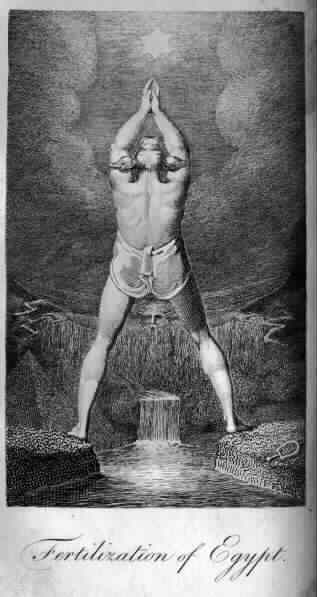Poets View the Industrial Revolution
Today, we learn what some contemporary poets had to say about the Industrial Revolution. The University of Houston's College of Engineering presents this series about the machines that make our civilization run, and the people whose ingenuity created them.
Not everyone who was charmed by the movie Chariots of Fire knows the source of its title. Actually, it's a phrase from an English hymn that's sung rather briefly near the beginning of the movie. The words, by the poet William Blake, at first seem to portray the Industrial Revolution as a manifestation of human evil. He says:
And did the Countenance Divine
Shine forth upon our clouded hills?
And was Jerusalem builded here
Among these dark Satanic mills?
Robert Burns reacted in much the same way when he saw the fire and smoke of the Carron Iron Works in 1787:
We came not here to view your works
In hopes to be more wise,
But only, lest we go to Hell,
It may be no surprise.
By the early 19th century a kind of environmental movement had arisen in England. It took the form of romantic naturalism. Nature had never looked very pretty to people who spent their life locked in combat with it, but as the works of man started to cover it up, poets and artists began to make nature into something it had never quite been. But, while Burns saw nature as beautiful, it was still a dark and formidable Gothic presence:
Farewell to the forests and wild-hanging woods;
Farewell to the torrents and loud-pouring floods.
For his contemporary, Percy Shelley, it was gentler:
Sweet oracles of woods and dells,
And summer winds in sylvan cells;
Hellish mills were indeed replacing the wild natural beauty of Scott's world -- and the sweet natural beauty of Shelley's. But it was William Blake who also said that "Nature without man is barren." He understood that we're ultimately responsible for reclaiming nature. His "Chariots of Fire" text ends like this:
Bring me my bow of burning gold!
Bring me my arrows of desire!
Bring me my spear! O clouds unfold!
Bring me my Chariot of Fire!
I will not cease from mental fight;
Nor shall my sword sleep in my hand
Till we have built Jerusalem
In England's green and pleasant land.
He's outlining our responsibility -- we must not shrink from mental fight 'til we've built a world fit for habitation. When Blake asks for his bow, his arrows, his spear, and his chariot of fire, he's reaching for the tools with which to build a better world. He's arming for mental fight. And that's what we have to do.
I'm John Lienhard, at the University of Houston, where we're interested in the way inventive minds work.
(Theme music)
Klingender, F.D., ART, and the Industrial Revolution. New York: Augustus M. Kelley Publishers, 1968.
Several later episodes deal with this theme. See, for example, Episode 335. This episode itself has been rewritten as Episode 1413.

(Image courtesy of Special Collections, UH Library)
An Illustration by William Blake for Erasmus Darwin's The Botanic Garden, 1799